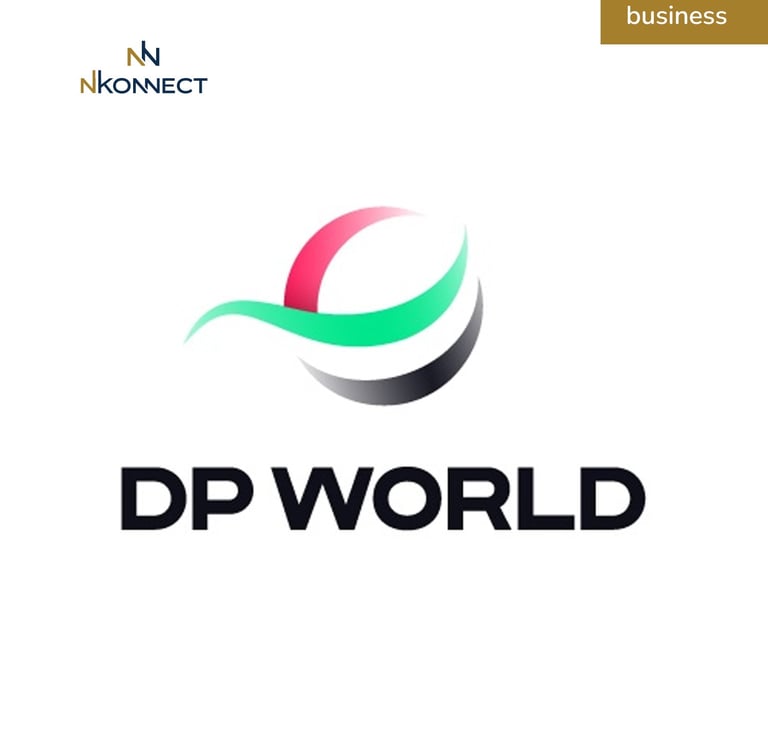DP World: Leading the Global Logistics and Trade Industry
UAEDUBAIBUSINESSBUSINESS


DP World stands as a global leader in the logistics and trade sector, playing a pivotal role in connecting businesses, facilitating international trade, and driving economic growth. Let's explore the history, achievements, services, and impact of DP World as a prominent player in the global supply chain and maritime industry.
Founding and Expansion
DP World traces its origins to Dubai Ports Authority, established in 1972 to manage Dubai's growing port operations. Over the decades, the company expanded its presence globally through strategic acquisitions, partnerships, and investments, becoming one of the world's largest port operators and logistics providers.
Global Network of Ports
DP World operates a vast network of ports and terminals across six continents, encompassing key maritime hubs and trade gateways. From flagship terminals like Jebel Ali Port in Dubai to major ports in Rotterdam, Antwerp, Southampton, Vancouver, and other strategic locations, DP World's portfolio facilitates efficient cargo handling, vessel operations, and logistics services.
Innovative Solutions and Technologies
DP World is known for its commitment to innovation, investing in state-of-the-art technologies and digital solutions to enhance efficiency, sustainability, and customer experience. The company embraces automation, data analytics, blockchain, and IoT (Internet of Things) to optimize port operations, supply chain visibility, and cargo management.
Integrated Logistics Services
In addition to port operations, DP World offers a comprehensive range of logistics services, including freight forwarding, warehousing, distribution, customs clearance, and inland transportation. These integrated solutions enable seamless movement of goods, reduce transit times, and support supply chain optimization for businesses across industries.
Focus on Sustainability
DP World prioritizes sustainability and environmental stewardship in its operations, implementing green initiatives, energy-efficient practices, and eco-friendly technologies. The company's sustainability efforts include emission reduction programs, renewable energy adoption, waste management, and conservation of marine ecosystems.
Trade Facilitation and Economic Impact
As a facilitator of global trade, DP World plays a crucial role in connecting markets, facilitating import-export activities, and supporting economic development. The company's ports and logistics infrastructure enable efficient movement of goods, boost trade volumes, attract investment, and contribute to job creation and economic prosperity in host countries.
Maritime Security and Safety
DP World places a strong emphasis on maritime security, safety, and compliance with international standards and regulations. The company invests in port security measures, training programs, risk management protocols, and crisis response capabilities to ensure safe and secure operations amid evolving global challenges.
Global Recognition and Partnerships
DP World's excellence and leadership in the logistics industry have earned it global recognition, industry awards, and partnerships with leading maritime organizations, governments, and trade bodies. The company's collaborations and initiatives promote best practices, innovation, and sustainable growth in the global supply chain ecosystem.
Conclusion
DP World's journey from a local port operator to a global logistics powerhouse reflects Dubai's vision for connectivity, trade facilitation, and economic diversification. With a focus on innovation, sustainability, customer-centricity, and strategic partnerships, DP World continues to shape the future of logistics, driving efficiency, resilience, and competitiveness in the global trade landscape.
DP World
Global logistics
Trade facilitation
Maritime industry
Port operations
Supply chain management
Container terminals
Digital solutions
Sustainability initiatives
Integrated logistics services
Freight forwarding
Innovation in logistics
Economic impact
Maritime security
Global trade connectivity
Strategic partnerships
Industry recognition
Environmental stewardship
Port automation
Supply chain optimization


